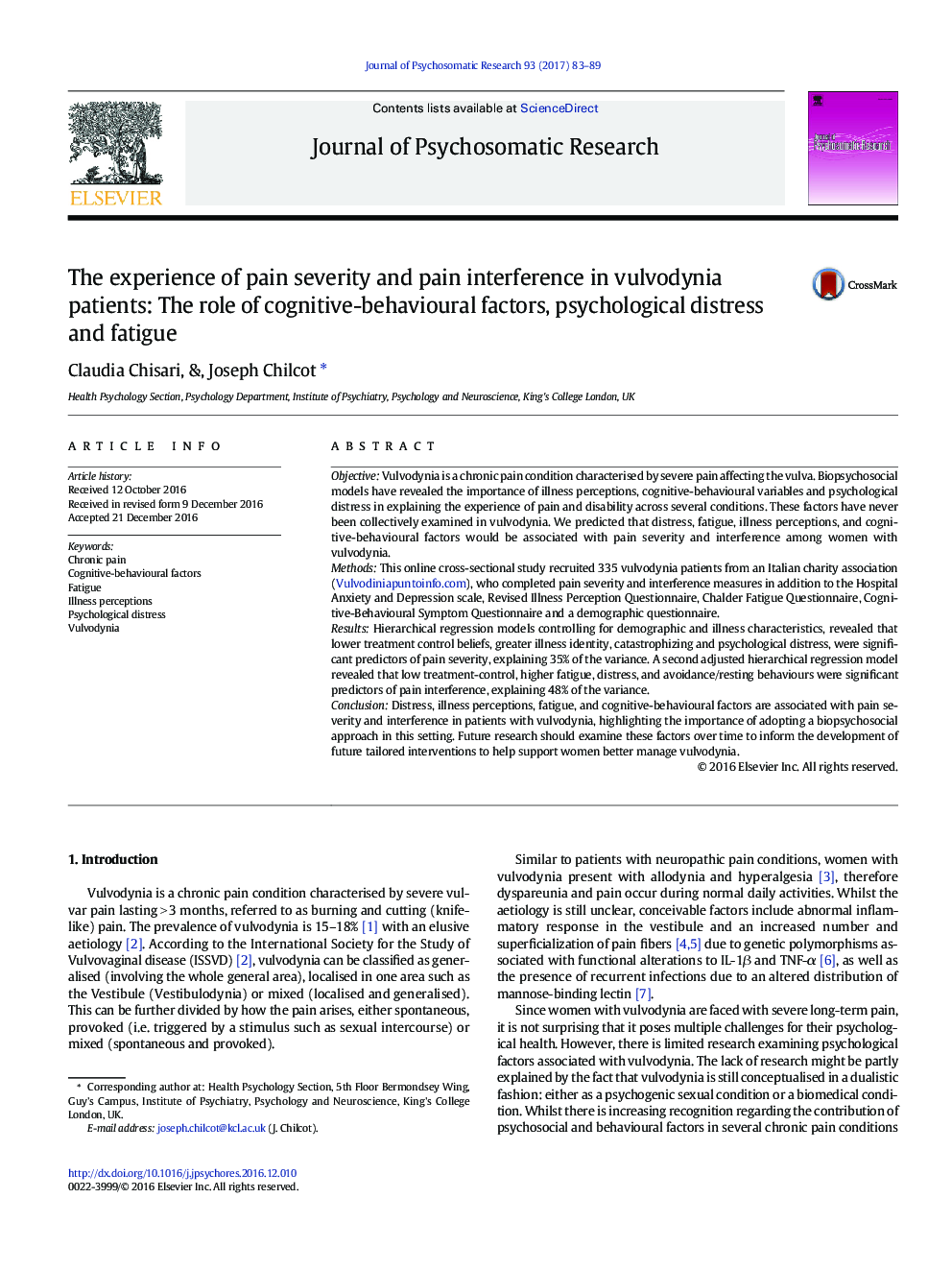| کد مقاله | کد نشریه | سال انتشار | مقاله انگلیسی | نسخه تمام متن |
|---|---|---|---|---|
| 5045852 | 1475902 | 2017 | 7 صفحه PDF | دانلود رایگان |
- Pain is a significant burden in Vulvodynia. Little research has examined biopsychosocial approaches pain in Vulvodynia.
- We studied the associations between cognitive-behaviour factors, distress and fatigue with pain severity and interference.
- Lower treatment control and illness identity and greater catastrophizing and distress, were associated with pain severity.
- Low treatment control beliefs, greater fatigue, distress, and avoidance behaviours were associated with pain interference.
ObjectiveVulvodynia is a chronic pain condition characterised by severe pain affecting the vulva. Biopsychosocial models have revealed the importance of illness perceptions, cognitive-behavioural variables and psychological distress in explaining the experience of pain and disability across several conditions. These factors have never been collectively examined in vulvodynia. We predicted that distress, fatigue, illness perceptions, and cognitive-behavioural factors would be associated with pain severity and interference among women with vulvodynia.MethodsThis online cross-sectional study recruited 335 vulvodynia patients from an Italian charity association (Vulvodiniapuntoinfo.com), who completed pain severity and interference measures in addition to the Hospital Anxiety and Depression scale, Revised Illness Perception Questionnaire, Chalder Fatigue Questionnaire, Cognitive-Behavioural Symptom Questionnaire and a demographic questionnaire.ResultsHierarchical regression models controlling for demographic and illness characteristics, revealed that lower treatment control beliefs, greater illness identity, catastrophizing and psychological distress, were significant predictors of pain severity, explaining 35% of the variance. A second adjusted hierarchical regression model revealed that low treatment-control, higher fatigue, distress, and avoidance/resting behaviours were significant predictors of pain interference, explaining 48% of the variance.ConclusionDistress, illness perceptions, fatigue, and cognitive-behavioural factors are associated with pain severity and interference in patients with vulvodynia, highlighting the importance of adopting a biopsychosocial approach in this setting. Future research should examine these factors over time to inform the development of future tailored interventions to help support women better manage vulvodynia.
Journal: Journal of Psychosomatic Research - Volume 93, February 2017, Pages 83-89
